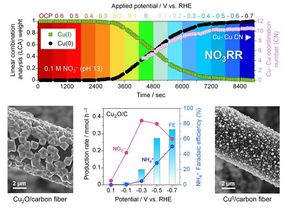New System for Microwave-Assisted Peptide Synthesis
Advertisement
The application of microwave energy has proved to be a major enabling tool for many chemical applications requiring energy input. A new technique for microwave-assisted, solid-phase peptide synthesis has been developed that allows for coupling times as low as two minutes. A single-mode cavity is used to allow for a high microwave power density and a uniform field distribution. A vessel is placed inside of the cavity to allow for filtration of the solution and easy addition of reagents. Also, enhanced cleavage of the final peptide product from the resin takes place in the microwave cavity. The technique uses microwave irradiation and cooling simultaneously to keep the overall bulk temperature of the solution low, while allowing for maximum microwave energy input. This method allows for simple automation that will also be discussed.
Microwave energy allows for higher resin substitution and less excess reagents to be used, increasing scale-up potential when compared to traditional methods. Aggregation is lessened by microwave energy allowing for the possibility of longer peptide sequences. The use of a universal method for microwave-assisted, solid-phase peptide synthesis will be explored. Specific examples of the effects of the microwave energy on coupling times, yields, racemization, sequence length, and scale up will be presented and discussed.
Other news from the department research and development
Most read news
More news from our other portals
See the theme worlds for related content
Topic world Synthesis
Chemical synthesis is at the heart of modern chemistry and enables the targeted production of molecules with specific properties. By combining starting materials in defined reaction conditions, chemists can create a wide range of compounds, from simple molecules to complex active ingredients.

Topic world Synthesis
Chemical synthesis is at the heart of modern chemistry and enables the targeted production of molecules with specific properties. By combining starting materials in defined reaction conditions, chemists can create a wide range of compounds, from simple molecules to complex active ingredients.




















































